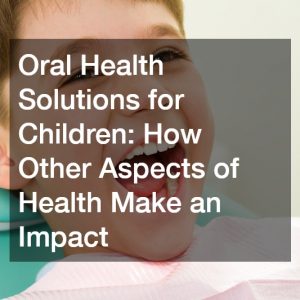Essential Dental Hygiene Tips for a Healthy Smile
Maintaining good oral hygiene is crucial for a healthy smile and overall well-being. Whether you’re a dental professional or just someone looking to improve your dental routine, understanding the basics of effective dental care can make a big difference. Below are some essential tips to help you or your patients maintain optimal oral health.
1. Brushing: The Foundation of Oral Care
Brushing your teeth is the cornerstone of any dental hygiene routine. Proper brushing technique and frequency can significantly reduce the risk of cavities, gum disease, and other oral health issues. Here’s how to get the most out of your brushing routine:
- Brush Twice Daily: Aim to brush your teeth once in the morning before breakfast and once at night before bed.
- Use an Electric Toothbrush: Consider investing in an electric toothbrush, which can reduce user error and ensure more thorough cleaning.
- Brush for Two Minutes: Spend at least two minutes brushing, focusing on all surfaces of your teeth.
- Replace Your Toothbrush: Change your toothbrush or brush head every three to four months or sooner if the bristles are frayed.
- Use Fluoride Toothpaste: Fluoride strengthens enamel and helps prevent cavities.
2. Flossing: Don’t Neglect the Spaces Between
Flossing is just as important as brushing, yet it’s often overlooked. Flossing removes plaque and food particles from between teeth and under the gumline, areas where your toothbrush can’t reach. Here’s how to make flossing a consistent part of your routine:
- Floss Daily: Floss at least once a day, preferably before bed, to remove plaque buildup from between your teeth.
- Use Proper Technique: Curve the floss around each tooth in a “C” shape and slide it gently under the gumline.
- Try Alternatives: If traditional floss is challenging, consider interdental brushes, floss picks, or water flossers.
- Focus on Consistency: Even if you can’t floss every day, do it as often as possible to maintain gum health.
- Educate Patients: For dental professionals, educating patients about the importance of flossing can lead to better long-term oral health.

3. Choosing the Right Toothpaste: Fluoride is Key
The type of toothpaste you use can have a significant impact on your oral health. Fluoride toothpaste is widely recommended because of its proven benefits in preventing tooth decay. Here are some guidelines for choosing the right toothpaste:
- Use Fluoride Toothpaste: Fluoride helps to remineralize enamel and prevent cavities.
- Avoid Abrasive Ingredients: Stay away from toothpaste with harsh abrasives, like charcoal, which can wear down enamel.
- Consider Sensitivity: If you have sensitive teeth, opt for a toothpaste designed to reduce sensitivity while providing cavity protection.
- Check for ADA Approval: Look for toothpaste with the American Dental Association (ADA) seal of approval.
- Switch Up Flavors: For children or patients resistant to brushing, offering a variety of toothpaste flavors can encourage regular brushing.
4. Tongue Scraping: An Easy Addition to Your Routine
Bad breath is often caused by bacteria that accumulate on the tongue. Tongue scraping is a simple yet effective way to remove these bacteria and keep your breath fresh. Incorporating this step into your daily routine can make a noticeable difference:
- Scrape Daily: Use a tongue scraper every morning to remove the buildup of bacteria on your tongue.
- Be Gentle: Apply light pressure while scraping to avoid irritating your tongue.
- Rinse After Scraping: Rinse your mouth with water or mouthwash to remove any residual bacteria.
- Choose the Right Tool: Tongue scrapers come in various materials like plastic and metal; choose one that feels comfortable.
- Educate on Benefits: Patients often overlook tongue scraping; highlighting its benefits can improve compliance.
5. Fluoride Mouthwash: An Extra Layer of Protection
For those prone to cavities or enamel erosion, adding a fluoride mouthwash to your routine can provide extra protection. Fluoride mouthwash helps strengthen enamel and reduce the risk of cavities, especially when used before bed:
- Use Before Bed: Swish with a fluoride mouthwash before bed to allow the fluoride to work overnight.
- Don’t Rinse with Water: After using fluoride mouthwash, avoid rinsing with water to maximize its effectiveness.
- Check for Acid-Free Formulas: Ensure your mouthwash is not acidic, as acid can erode enamel.
- Combine with Toothpaste: Some people choose to leave fluoride toothpaste on their teeth overnight instead of using mouthwash.
- Recommend to Patients: For dental professionals, recommending fluoride mouthwash to cavity-prone patients can enhance their at-home care.
Conclusion
Incorporating these simple yet effective dental hygiene tips into your daily routine can lead to a healthier smile and better overall oral health. Whether you’re brushing, flossing, or adding extra steps like tongue scraping or using fluoride mouthwash, consistency is key. If you’re in the Leicester area and considering orthodontic treatments, options like Invisalign Leicester can further enhance your smile while maintaining your dental health. For more personalized advice, always consult with your dentist or hygienist.
Remember, good dental hygiene is not just about keeping your teeth clean—it’s about ensuring a lifetime of healthy smiles.
